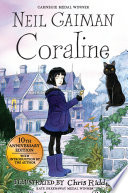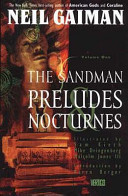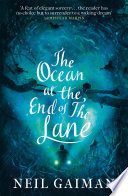Neil Gaiman is a prolific writer who creates enchanting stories for all ages, from children to adults. Fans will want to check out our list of the best authors like Neil Gaiman.
Born in 1960 in Hampshire, England, Neil Gaiman has written everything from short stories to graphic novels and film scripts. His contributions to literature make him beloved by readers from childhood through adulthood, with books that explore fairy tales, mythology, and the liminal spaces where our world meets the fantastical.
Gaiman began his career writing comic books, including series for Marvel and several graphic novels. Of these, The Sandman became his breakthrough work—the first comic book series to win the World Fantasy Award for Best Short Story. This groundbreaking series redefined what comics could achieve, blending mythology, horror, and literary storytelling in ways that influenced an entire generation of creators.
Today, he has over 40 books and countless short stories to his name. Fans know his masterworks include The Ocean at the End of the Lane and Anansi Boys, which debuted at the top of the New York Times bestseller list upon release. His young-adult novel The Graveyard Book won a Newbery Medal, while his picture books enchant the youngest readers.
In 2025, as streaming services adapt more of his work and new readers discover his blend of ancient myth and modern storytelling, Gaiman’s influence continues expanding across all media. His exploration of identity, belonging, and the power of stories feels more relevant than ever in our digitally connected yet emotionally fragmented world.
Must-Read Authors Like Neil Gaiman You Should Read
For more fantasy recommendations, you might also enjoy exploring best fantasy authors, authors like Brandon Sanderson, authors like George R.R. Martin, or discover our comprehensive guide to best fantasy authors.
1. Terry Pratchett (1948-2015)
Terry Pratchett published his first story at age 13, leaving school to pursue writing full-time at 17. His Discworld series became one of fantasy’s most beloved works, earning him a knighthood in 2009. The Colour of Magic launched the 41-book series that has sold worldwide, creating a satirical fantasy universe that mirrors our own absurdities.
This English author won a Carnegie Medal for The Amazing Maurice and His Educated Rodents, a children’s novel that showcased his ability to write for all ages. Good Omens, his collaboration with Neil Gaiman, perfectly demonstrates their shared sensibility—mixing humor with apocalyptic stakes while never losing sight of human nature’s essential goodness and folly.
Pratchett’s work resonates in 2025 as his satirical takes on technology, bureaucracy, and human nature feel increasingly prophetic. The recent Good Omens adaptations have introduced his wit to new audiences, cementing his legacy as fantasy’s greatest satirist.
“No, what he didn’t like about heroes was that they were usually suicidally gloomy when sober and homicidally insane when drunk.” — Terry Pratchett, The Colour of Magic
2. Diana Wynne Jones (1934-2011)
British novelist Diana Wynne Jones explored time travel and parallel universes in fantasy novels that influenced countless readers. This London-born teacher began writing to keep her mind sharp while raising children, creating stories that would later inspire a generation of fantasy authors.
Her Chrestomanci series, beginning with Charmed Life, won a Guardian Children’s Fiction Prize in 1978. The Crown of Dalemark, concluding her four-book Dalemark series, earned the Mythopoeic Fantasy Award. Her Howl’s Castle trilogy, starting with Howl’s Moving Castle, gained renewed popularity through Studio Ghibli’s acclaimed film adaptation.
Jones’ work shares Gaiman’s ability to create stories where the mundane and magical interweave seamlessly. Her exploration of identity, family dynamics, and coming-of-age through fantastical circumstances paved the way for modern fantasy literature that treats young protagonists with genuine respect and complexity.
“Funny the way it was never enough to swear and promise just the once. You seemed to have to rethink and repromise every time the subject came up.” — Diana Wynne Jones, The Crown of Dalemark
3. Stephen King (1947-present)
Stephen King is a versatile writer with over 75 books spanning horror, fantasy, and supernatural fiction. His recent novel Fairy Tale (2022) places him directly in Gaiman’s territory, exploring a parallel world where good battles evil through the eyes of a teenage protagonist discovering hidden realms beyond our own.
Born in Maine in 1947, King sold his first novel Carrie in 1973 and has crafted stories that examine the dark underbelly of American life ever since. His 2003 National Book Foundation Medal for Distinguished Contribution to American Letters recognized his literary impact beyond genre boundaries.
Like Gaiman, King understands that the most effective fantasy and horror emerges from recognizable human experiences. Both writers excel at taking ordinary people and thrusting them into extraordinary circumstances, exploring how individuals respond when reality’s comfortable boundaries dissolve.
“You never know where the trapdoors are in your life, do you?” — Stephen King, Fairy Tale
4. Alan Moore (1953-present)
Alan Moore revolutionized comic book storytelling as a British writer and novelist working in science fiction and horror. His collaborations with Marvel UK and DC Comics redefined what sequential art could achieve, while his creator-owned works like The League of Extraordinary Gentlemen and Promethea explored mythology and consciousness.
Watchmen and V for Vendetta brought mature themes to comics, deconstructing superhero mythology while examining power, corruption, and individual agency. Moore prefers calling his works “comic books” rather than “graphic novels,” respecting the medium’s unique storytelling potential.
His exploration of multiple universes and interconnected narratives aligns perfectly with Gaiman’s work. Both writers understand how mythology and folklore continue evolving, reflecting contemporary anxieties through archetypal stories that feel both ancient and urgently modern.
“All we ever see of stars are their old photographs.” — Alan Moore, Watchmen
5. Erin Morgenstern (1978-present)
Erin Morgenstern brought fresh perspectives to fantasy with her atmospheric, dream-like novels. Her debut The Night Circus (2011) won the Locus Award for Best First Novel, establishing her as a major voice in contemporary fantasy through its immersive, carnival-gothic atmosphere.
The Starless Sea (2019) and the short fiction collection Flax-Golden Tales showcase her talent for creating layered narratives where stories exist within stories, much like Gaiman’s nested mythologies. Her Smith College background in theater influences her highly visual, almost cinematic storytelling approach.
Morgenstern’s work feels perfectly suited to 2025’s readers who crave escapism that doesn’t abandon emotional complexity. Her carnival and library settings offer sanctuary spaces where magic operates according to its own logic, providing comfort while exploring themes of art, love, and creative purpose.
“The finest of pleasures are always the unexpected ones.” — Erin Morgenstern, The Night Circus
6. Douglas Adams (1952-2001)
Douglas Adams created The Hitchhiker’s Guide to the Galaxy, transforming absurdist humor into profound commentary on existence, bureaucracy, and humanity’s place in an incomprehensible universe. This English author and screenwriter sold over 15 million copies of his Hitchhiker’s series while working as a radio comedy writer.
His unexpected death in 2001 cut short a brilliant career, with his final unfinished novel The Salmon of Doubt published posthumously. Adams shared Gaiman’s ability to find humor in cosmic horror, treating the universe’s vastness and indifference as sources of comedy rather than despair.
Both writers excel at making the impossible feel inevitable through careful attention to character reactions and internal logic. Adams’ influence on contemporary science fiction and fantasy cannot be overstated—his blend of intellectual curiosity and satirical wit continues inspiring new generations of writers.
“If there’s anything more important than my ego around, I want it caught and shot now.” — Douglas Adams, The Hitchhiker’s Guide to the Galaxy
7. N.K. Jemisin (1972-present)
N.K. Jemisin made history as the first author to win three consecutive Hugo Awards for Best Novel with her Broken Earth trilogy. The Fifth Season, The Obelisk Gate, and The Stone Sky showcase her ability to blend geological science fiction with profound explorations of oppression, power, and survival.
This groundbreaking science fiction writer has published short fiction in prestigious magazines including Clarkesworld and Popular Science. Time magazine named her to their Time 100 list, recognizing her as one of the world’s most influential people.
Like Gaiman, Jemisin creates worlds where the fantastical serves deeper thematic purposes. Her exploration of systemic oppression through fantasy and science fiction frameworks offers readers both escapism and uncomfortable truths about power structures in our own world.
“I think,” Hoa says slowly, “that if you love someone, you don’t get to choose how they love you back.” — N.K. Jemisin, The Stone Sky
8. Philip Pullman (1946-present)
Philip Pullman was born in Norwich, England, and attended Oxford University before crafting fantasy books that tackle profound philosophical questions. The Times named him one of the 50 greatest British writers since 1945, and he was knighted for his contributions to English literature.
Northern Lights (published as The Golden Compass in the US), the first book in his His Dark Materials trilogy, won a Carnegie Medal in 1995. The series’ final volume, The Amber Spyglass, became the first children’s book to win the Whitbread Book of the Year Prize in 2002.
Pullman shares Gaiman’s willingness to address complex themes in stories accessible to younger readers. Both writers understand that children’s literature can tackle serious subjects—death, identity, power, freedom—without condescending to their audience or simplifying complex moral questions.
“We are all subject to the fates. But we must act as if we are not, or die of despair.” — Philip Pullman, Northern Lights
9. Susanna Clarke (1959-present)
English author Susanna Clarke was born in Nottingham and attended Oxford before creating fantasy and alternate history novels that redefined the genre. Her debut novel Jonathan Strange & Mr. Norrell won or received nominations for 11 different awards, including Hugo, Nebula, and Locus Awards for Best First Novel.
The Ladies of Grace Adieu and Piranesi demonstrate her range, from Regency-era fantasy to philosophical exploration of reality and memory. Clarke’s meticulous research and literary prose bring scholarly depth to fantastical concepts, much like Gaiman’s mythological accuracy enhances his contemporary stories.
Both writers excel at creating fantasy that feels historically grounded while exploring timeless themes. Clarke’s exploration of English magic traditions parallels Gaiman’s use of global mythologies, showing how ancient stories continue shaping contemporary experience.
“Time and I have quarreled. All hours are midnight now. I had a clock and a watch, but I destroyed them both. I could not bear the way they mocked me.” — Susanna Clarke, Jonathan Strange & Mr. Norrell
10. Ray Bradbury (1920-2012)
American author and screenwriter Ray Bradbury wrote across multiple genres—mysteries, horror, science fiction, fantasy, and realistic fiction—with imagination and poetic language that influenced countless writers. Born in Illinois, he moved to Los Angeles where he spent most of his career exploring humanity’s relationship with technology and wonder.
His literary career began with fanzines and science fiction conventions, eventually producing classics like Fahrenheit 451, which has over 5 million copies in print. Bradbury’s ability to find magic in everyday life and terror in technological progress mirrors Gaiman’s exploration of wonder and darkness coexisting.
Both writers understand that the most powerful fantasy emerges from emotional truth. Bradbury’s celebration of libraries, books, and imagination provides the perfect foundation for readers seeking authors who treat stories as sacred spaces where transformation becomes possible.
“There must be something in books, something we can’t imagine, to make a woman stay in a burning house; there must be something there. You don’t stay for nothing.” — Ray Bradbury, Fahrenheit 451
These authors continue Neil Gaiman’s tradition of blending mythology with modern storytelling, creating works that speak to both our need for wonder and our desire to understand the complex world around us. In 2025, as we navigate an increasingly complex reality, these writers offer both escape and insight through stories that remind us of imagination’s transformative power.





